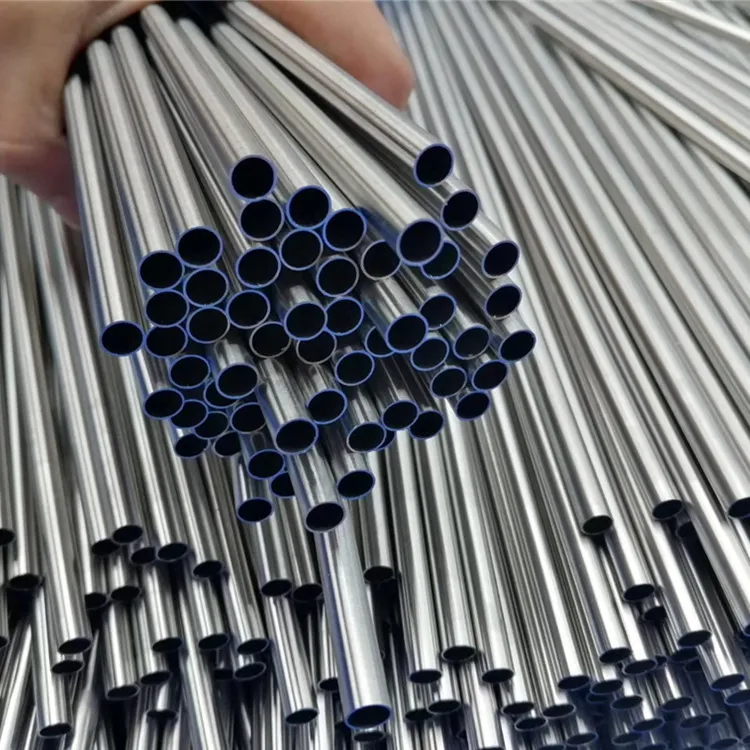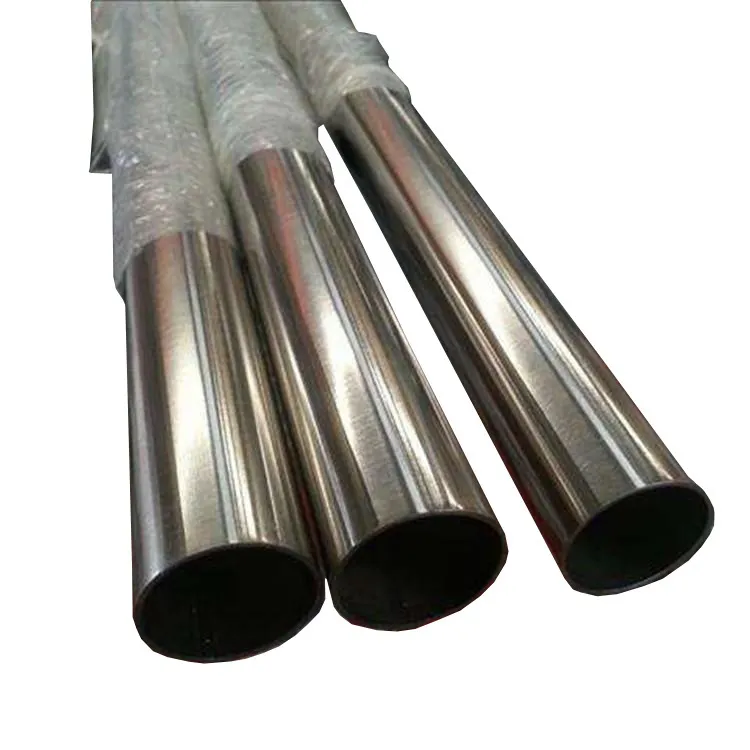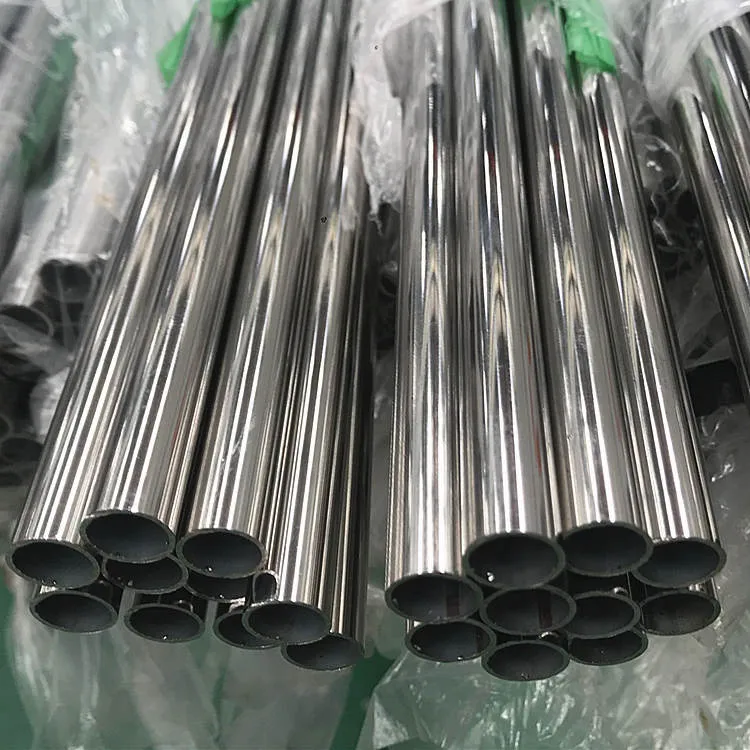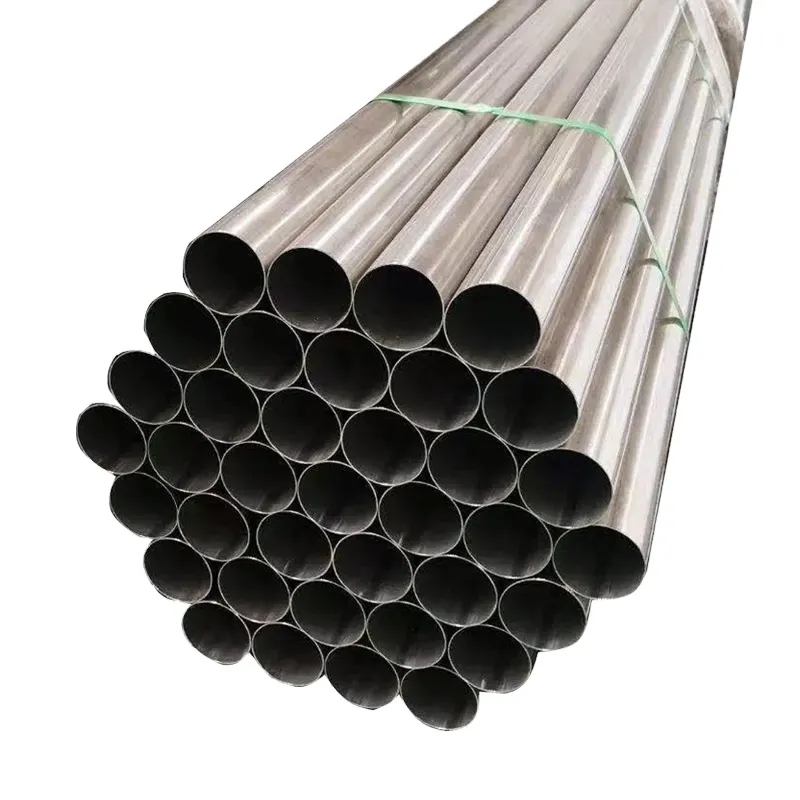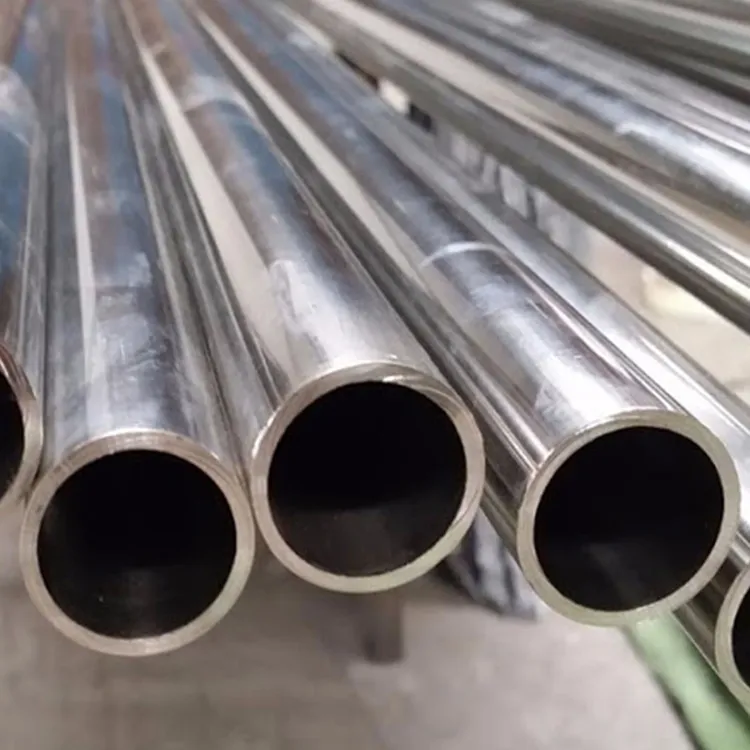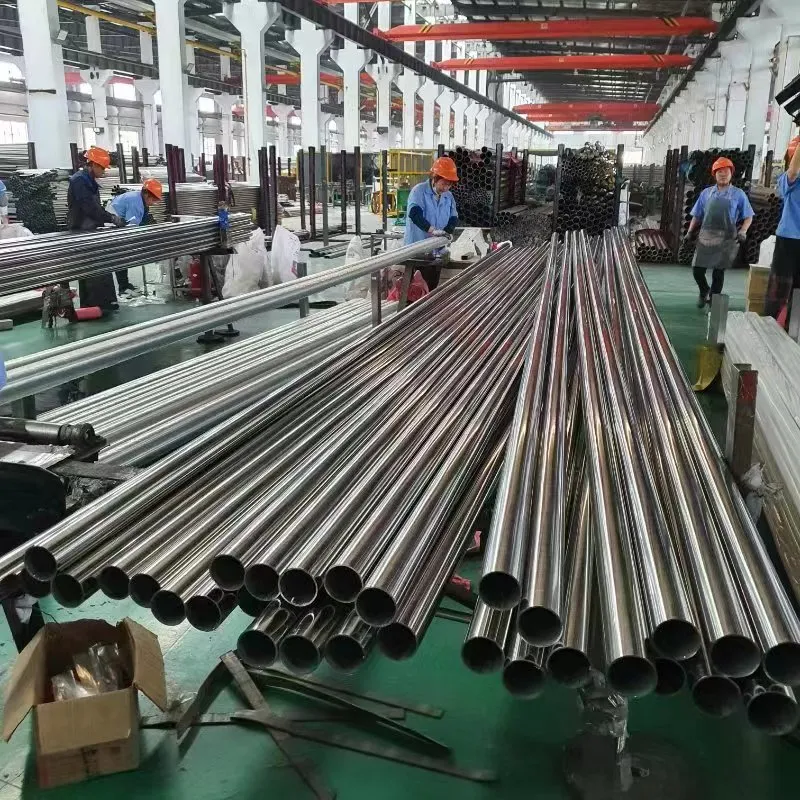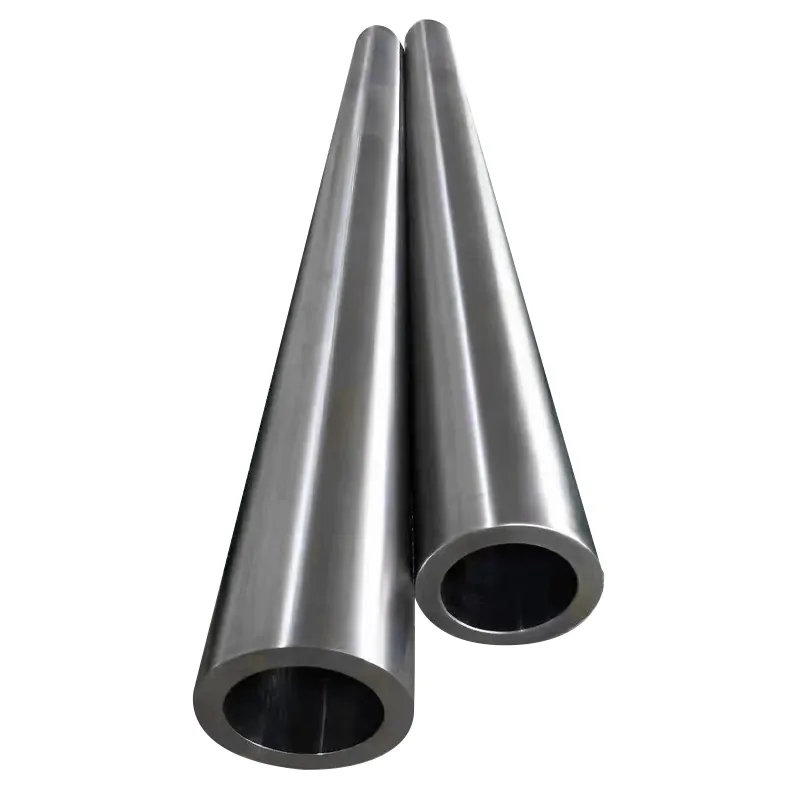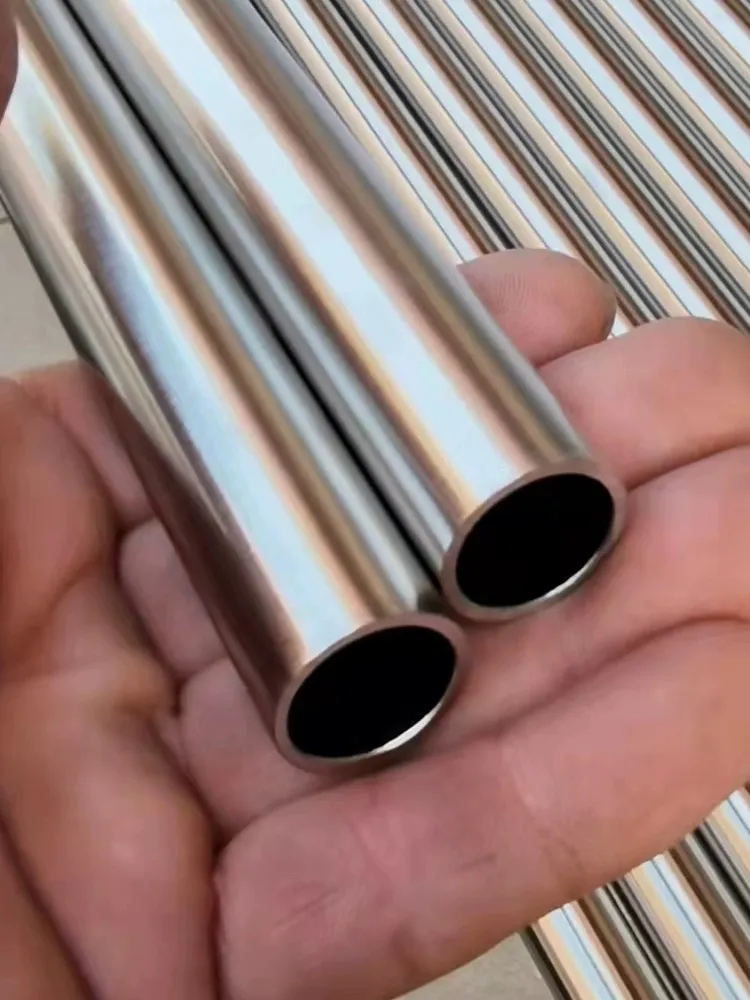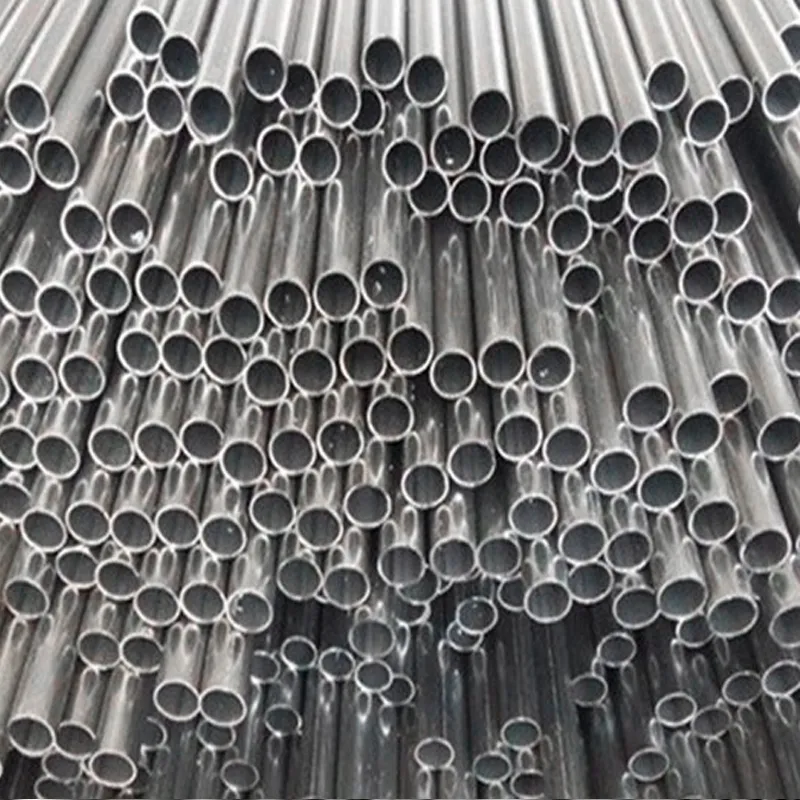PRODUCT CENTER
CONTACT US
If you are interested in cooperation, please contact us immediately, we will give you feedback as soon as possible!
The advantages of 317 stainless steel pipe stem from its exceptional corrosion resistance properties, particularly in harsh environments containing acids, chemicals, and saltwater. Its superior resistance to corrosion and pitting makes it ideal for critical applications in chemical processing, marine, and food processing industries. Additionally, its durability and aesthetic appeal contribute to its suitability for architectural, structural, plumbing, and automotive applications. Overall, 317 stainless steel pipe provides reliable performance and longevity in corrosive environments, making it a preferred choice for various industrial and commercial applications.
The advantages of 2520 stainless steel pipe stem from its exceptional corrosion resistance properties, particularly in aggressive chemical environments and high-temperature conditions. With its high chromium and nickel content, 2520 offers superior resistance to corrosion, oxidation, and high temperatures, making it ideal for applications requiring durability and reliability in harsh conditions. Its versatility allows for diverse applications across industries such as chemical processing, petrochemical, pharmaceutical, architectural, and marine. Overall, 2520 stainless steel pipe provides reliable performance and longevity, making it a preferred choice for critical applications where corrosion resistance and durability are paramount.
The advantages of 310 stainless steel pipe lie in its exceptional high-temperature strength, oxidation resistance, and resistance to cyclic heating and cooling. With a high chromium and nickel content, 310 offers superior performance in applications requiring prolonged exposure to elevated temperatures, such as industrial furnaces, heat exchangers, and boiler systems. Its resistance to thermal cycling and corrosion makes it suitable for critical applications in industries such as chemical processing, aerospace, and automotive. Overall, 310 stainless steel pipe provides durable and reliable performance, ensuring longevity and efficiency in demanding environments.
The advantages of 630 stainless steel pipe, also known as 17-4 PH stainless steel, lie in its exceptional combination of high strength, corrosion resistance, and versatility. Its ability to withstand extreme conditions, such as those found in aerospace, defense, and oil and gas industries, makes it a preferred material for manufacturing critical components like aircraft parts and drilling equipment. Additionally, its resistance to corrosion and high temperatures ensures reliability in demanding environments, including marine and high-pressure systems. Its robustness and adaptability contribute to its widespread use in applications where durability and performance are paramount.
The advantages of 440C stainless steel pipe lie in its exceptional hardness, wear resistance, and corrosion resistance properties. Ideal for applications requiring high-performance cutting tools, precision bearings, and surgical instruments, its high carbon content ensures superior hardness and edge retention. Additionally, its corrosion resistance makes it suitable for various industrial applications, including valves, molds, and shafts, where durability and reliability are crucial. Overall, 440C stainless steel pipe offers outstanding performance in demanding environments, making it a preferred choice for applications requiring exceptional hardness, wear resistance, and corrosion resistance.
The advantages of 302 stainless steel pipe lie in its balanced combination of moderate corrosion resistance, good formability, and high strength. Its versatility allows for various applications across industries such as automotive, aerospace, and construction, where it is utilized for manufacturing fasteners, springs, and structural parts. Additionally, its resistance to corrosion and heat makes it suitable for use in chemical processing equipment and household appliances. Its reliability and adaptability make it a preferred material for applications requiring a balance of corrosion resistance, formability, and strength, ensuring optimal performance and durability.
The advantages of 303 stainless steel pipe stem from its exceptional machinability, moderate corrosion resistance, and good formability properties. Its superior machinability allows for efficient production of precision components in industries such as automotive, aerospace, and machinery manufacturing. Additionally, its corrosion resistance and formability make it suitable for various applications where durability and dimensional accuracy are essential, such as in instrumentation and equipment manufacturing. Its versatility and reliability make it a preferred material for applications requiring precise machining, corrosion resistance, and formability, ensuring optimal performance and efficiency in manufacturing processes.
The advantages of 316H stainless steel pipe lie in its exceptional combination of elevated temperature strength and superior corrosion resistance. With a higher carbon content compared to standard 316 stainless steel, 316H offers improved high-temperature performance, making it ideal for applications in high-temperature industrial furnaces, heat exchangers, and boiler systems. Its superior corrosion resistance ensures durability in demanding environments, including those in chemical processing, oil and gas, and petrochemical industries. Overall, 316H stainless steel pipe provides reliable performance under elevated temperature conditions, making it a preferred choice for critical applications where strength and corrosion resistance are paramount.
The advantages of 409 stainless steel pipe stem from its balance of corrosion resistance, formability, and heat resistance properties. Its ability to withstand high temperatures and thermal expansion makes it ideal for automotive exhaust systems, while its affordability and versatility contribute to its widespread use in various industrial applications. Additionally, its resistance to corrosion ensures durability and longevity in environments prone to corrosive elements, enhancing its value in critical applications where reliability and performance are essential.


